Empowering Women Military Leaders Through Learning and Collaboration
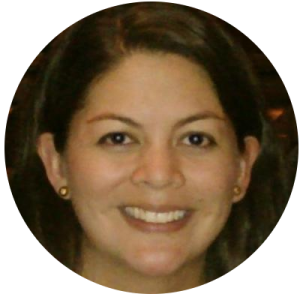
In response to these ongoing conversations and efforts taking place to advance women as leaders in international security, the Halifax Forum launched a new Peace With Women Fellowship. Each year, the fellowship brings together senior, active-duty, female military officers from NATO member and partner countries for a 3-week executive tour of the political and technological capitals of the United States and Canada. The goal of the fellowship is to challenge participants by engaging with senior government, military, corporate, and academic leaders to discuss and better understand the world’s leading security issues. The program endeavors to not only ensure that the Fellows can talk about the problems and ideas with which they interact, but also that they can propose innovative solutions and apply what they learn in their home countries.
VantagePoints spoke with Paz Magat the Director of the Peace With Women Fellowship to learn more about the program as well as the current state and future of women leaders in international security.
Describe the path to your current role with the Halifax Forum where you are working to advance women’s leadership in international security.
My background is varied. I started my career in professional sports and quickly realized that the field didn’t utilize the skills I had to offer. This led me to pivot to the international education field. That work exposed me to the role that diplomacy plays in sharing America’s values with other countries. For example, I worked with State Department-funded grants that allowed high school students from abroad to visit the United States and US students to visit countries abroad. While managing these programs, I became passionate about understanding how sharing culture and ideas through people to people exchanges, I believe the future of humanity will rely on promoting greater understanding between cultures and countries.
Following my work with these educational exchange programs, I took a bit of a left turn and attended graduate school where I received a Master of Arts in Applied Social Change and Peace Building. My graduate program primarily comprised of field work in Kenya, Haiti, India, and the United States and sought to address how actual change takes place in society in each of those locations. The peacebuilding work became really important to me; I saw the connection between community and peace at a very personal level rather than from the 35,000 foot view.
Out of that master’s degree, I spent five years as an international consultant primarily on the African continent training peacekeepers, non-peacekeepers, and military from the African Union as well as United Nations on subjects including conflict management. In those classrooms, it became very clear that the role of women in the military and peacekeeping was very different. I always knew that to be true, but it was really in your face in the classroom. There were typically only a few women in the classroom and we often arranged the training to give the women more opportunities to speak. The men in the classrooms didn’t resist this approach, but they were usually surprised by the contributions they made. Seeing that really drove me to figure out what else can I could do in this field.
Lo and behold, I found this opportunity with the Halifax International Security Forum to launch a new program for women in the military at NATO and NATO ally and partner countries called the Peace With Women Fellowship. The program didn’t exist yet and Halifax was looking for somebody to actually make it happen which really appealed to me as it gave me a lot of leeway with designing the program. Thus, my path to Halifax is truly a culmination of the varied experiences throughout my career.
In militaries and other security organizations, what unique barriers to leadership do women face as opposed to men?
What I’ve learned, especially from the [Peace With Women] fellows is the challenge of bigger societal barriers. It’s not just a military nor a leadership question. It is the question of what role do women play in society at large in any one of their cultures? That’s really at the root of what we’re talking about. And so that trickles into military organizations. If the roles that militaries traditionally offered were associated with masculine roles in society, the structure of a military would naturally reflect that. And now that more and more militaries are opening up opportunities to both men and women, people are becoming more aware and asking “what more can we do?” If women can lead in other areas of society, why not the military as well?
As somebody pointed out at the forum last year, nobody asks why men can’t do certain roles. Our fellows, who are highly accomplished in their military careers, are convinced that if they are good at what they do, they will be afforded the opportunities available to anybody in the military, not because they’re women. By the same token, the majority of the women in our fellowship have also benefited from having leadership that believes in that philosophy. These fellows feel that the staunch old boys club no longer exists and the tide is changing.
What our fellows are worried about is what happens for future generations of women. Unless you have conscription, joining the military is not as attractive of a job as it used to be. Fellows are worried about women in the lower ranks and whether they will remain in the military. More and more military organizations are finally beginning to acknowledge that something’s going to have to give in order to maximize the human capital that exists in their country. It’s no longer as simple as opening up positions to women. It’s setting up the structures so a military career actually becomes a desirable job prospect for people, especially women (i.e. being able to take maternity leave and not being penalized or not promoted).
To really answer your question, it’s not actually about leadership, it’s about opportunity and that women, by the nature of their societal rules are natural born leaders. They’re already leading; they’re just finding new places to be leaders. For example, there is General Janet Wolfenbarger who is very optimistic. She was in the first class of the United States Air Force that allowed women and is a first woman four-star General in the United States Air Force, second in all branches. She feels that we’ve actually moved the needle quite significantly over the last 40 years. She said it’s slow and steady and we’d love to see change happen faster, but for people who are career military, that’s just not how it works. And it serves a purpose and there’s a reason why the military moves at the pace it does. So, sometimes talking to General Wolfenbarger is really refreshing, because she reminds us that things are actually getting better and we just need to keep at it.
Can you talk a little more about the Peace With Women Fellowship and its origins? What are the fellowship’s main goals and how is it set up?
For several years, it became clear that the forum had the power to bring a lot of powerful people together. Our organization started thinking about other ways it could be effective other than as a convener. And over the course of time with a number of advisors and input from Canada, who’s one of our key stakeholders, as well as friends of the organization, Halifax realized there’s lots of programs out there for different groups of people.
One thing that we discussed at every forum is the role of women in the military. And that conversation has shifted from the role of women to the role of gender. It’s an important shift, to be talking about men and women. And as General Jonathan Vance, the Chief of Defense of Canada says, it’s about maximizing the talent pool in your country, this isn’t just about bringing in more women.
And so we announced the Peace With Women Fellowship at the 2017 Halifax International Security Forum. When it was first designed, it was with the intention of advancing women’s leadership in international security. And then I showed up. I think I was brought on because I come from the civil society, non-traditional security part of the conversation with my peacekeeping and community development work. And so, over the course of seven months, I led a team with guidance from our President to design a curriculum that was broad reaching, that not only covered the subject areas that we as an organization felt was important to these democratic nations but also to meet the needs and interests of the fellows themselves.
If you were to look at our 2018 program report you’ll see the 50 plus engagements we had over the course of four weeks. And you’ll see the breadth of those meetings every week, from General Colin Powell all the way to the Canadian Red Cross. And it is the intersection of what these women in their roles with militaries have with any of these organizations and individuals we meet.
The other thing that has been interesting is that because it’s called the Peace With Women Fellowship, and it is a program for women in the military, it is a constant assumption that this is a program about women. Our curriculum really tries to reflect that while gender is obviously a component in any one conversation about security as it should be in the future. Our goal was to create a pool of fellows who felt like they could return home with a depth of knowledge that they would not get in their ordinary day to day activities in their positions. And that, in turn, would make them more effective influencers and decision makers, within their organizations. Thus, the primary goal of the fellowship to develop the knowledge needed to be effective and influential leaders in their organizations.
The second main goal is to develop a network of women within the NATO structure who could over time create their own ‘boys club.’ We haven’t quite found a better way of saying that. But how can we network these women among each other and how can they be more supported? And how can they share resources across their organizations to be more effective with one another? That was the most fascinating part of our fellowship last year all the fellows quickly realized they were all in this for the same reason and that they wanted to remain connected.
And after spending a month together, the connection these women made with each other is tighter so they continue to stay in touch with each other. For example, when the shootings at the New Zealand mosque happened, the former fellows were sending tons of messages of support for our New Zealand fellow. We had a fellow from one of the smallest countries in NATO who was admittedly quite shy and the other fellows really rallied around her to try to support her and boost her confidence. For many of our fellows, they all learned through the experience that they are now in a position to be mentors to other women in the military. The fellowship was a real eye opener for them to realize they were breaking a new glass ceiling themselves. And they felt an obligation after this program to pass that momentum down to the next generation of colonels and brigadier generals who are coming through the ranks.
So, Halifax felt that the goals of the fellowship were met last year. We continue to support the idea that if we provide a space for these women to get what they need, outside of their usual opportunities at military institutions, that they will continue to rise in positions of leadership with the knowledge and now the network of people that will support them in that role. And that will only make them better leaders, which in turn makes build better militaries and better partners within NATO.
What makes this fellowship particularly unique, in your opinion, maybe relative to other initiatives that share maybe similar goals, similar objectives?
I would say primarily, that our curriculum again, has a wide breadth of knowledge. A lot of fellowships focus on fewer subjects and topics. Also, about 98%, of any engagement we have is with the top echelon of that sector. We only will engage the top brass to have the most substantive conversations possible. We promote a high participatory environment where our fellows are not just receiving lectures, but are asked to participate in these substantive conversations. It’s different in that I think most traditional fellowships require you to do research or some sort of capstone project and homework is involved. Our fellowship leans more towards an executive tour where fellows get to take from it what they need, and contribute what they can. And so, I think that’s a unique thing. We don’t know of any other fellowship that gathers women from democracies, who are senior military officials and go outside of the military to go learn.
Given that the Peace With Women Fellowship is relatively new, what other ideas or plans do you have to do more and also to continue to engage with previous fellows?
Once you’re an alumna of this program, you’re invited to the forum every year. So, there is an opportunity, should you be able to come to Nova Scotia, to connect with the new class and bond over a shared experience with the fellowship. Our goal over time as we build more alumni in different regions of the world is to be able to convene them to continue these conversations and develop that network.
We have a fairly robust monitoring, evaluation research and learning framework built into the program, where an independent team will continue to monitor not only the effects the fellows have felt from the program on their careers, but how well that network has continued beyond the fellowship. We already have stories of how fellows got to know each other, built a lot of trust between each other, and have recommended participation of their organizations with other fellows’ countries’ operations, for example. Ordinarily, this recommendation would not take place, but because the recommendation came from a fellow, somebody they knew and trusted, that was something they could trust would be beneficial to the operation.
There’s also been conversations among fellows about particular issues that they may not have thought about until they met other fellows from different countries. For example, we had one fellow from Norway who’s very interested in the Arctic and knows a decent amount about it. One of our other fellows, who’s a United States Army Colonel, is assigned to Special Operations Command Africa. She had never realized that the Arctic is experiencing many of the same problems as Africa. Both fellows talked a lot about the tyranny of distance and climate change and were shocked that the Arctic and Sub-Saharan Africa actually have a lot in common. They continue to talk about those similarities and what they’re learning about each other’s regions that might be able to help the other in thinking about planning and operations. So we’re seeing those kinds of collaborations taking place between our fellows. I think that’s a natural progression of our fellowship that they will continue.
What are your concerns about the world today and what gives you hope? And, you know, that can concern with where women are in international security or anything else?
The list of things you can be concerned about in the world is probably pretty long. But I see the glass as half full and likes to think of those challenges as opportunities. And so, I try not to focus on what the problem is, but what the solutions are and to think more holistically about things.
What I am hopeful about is the fact more people are thinking more holistically about solutions. They’re not thinking in their silos as much as they used to. And I think that cross pollination of information and creativity is something to be excited about. Because if people keep in mind that the solutions of the last however many years haven’t quite worked, then maybe it’s time for new ideas. And crossing sectors is taking place and I think that’s a great thing.
Another thing that gives me hope is just the general resilience of people, especially women. We’ve had to be resilient for so long; we don’t have a choice. And I think that kind of strength is something that will continue to sustain us women to weather whatever storm comes our way.
Another thing that gives me a lot of hope is that people are finally starting to awaken from the idea that conflict is not about country on country and military and military anymore. It’s about people. At the end of the day, it’s civilians who are most affected by some of the most important decisions being made in international security. The realization that civil society will play a significant role in a sustained and successful democracy is becoming more mainstream and that gives me hope. I come from a background where my family fled the Philippines on the eve of a revolution. And so I am especially sensitive to resilience, and the fact that we’re talking about people and that the conversations seem to be tilting in that direction.
I am optimistic that our leadership, especially in the military, are beginning to become more aware and mindful of the people who are at the end of that chain of decisions and are most affected by their decisions. So, as much as I think it’s really easy to despair, I also think there’s plenty to be celebrated and to really latch on to because we’ve got a lot of work to do across the international security sector. But the voices and the diversity of thought that is slowly turning the tide there is something I’m excited to be a part of.
Paz Magat is the Director of the Peace With Women Fellowship at Halifax International Security Forum. She settled in the United States when her family fled the Philippines on the eve of the People Power Revolution. The majority of her career has been spent in the non-profit sector. Her focus on the fields of international education, conflict management, and social change has taken her to 38 countries and counting. Paz is a graduate of Wellesley College and holds an MA in Applied Social Change and Peacebuilding from Future Generations University.

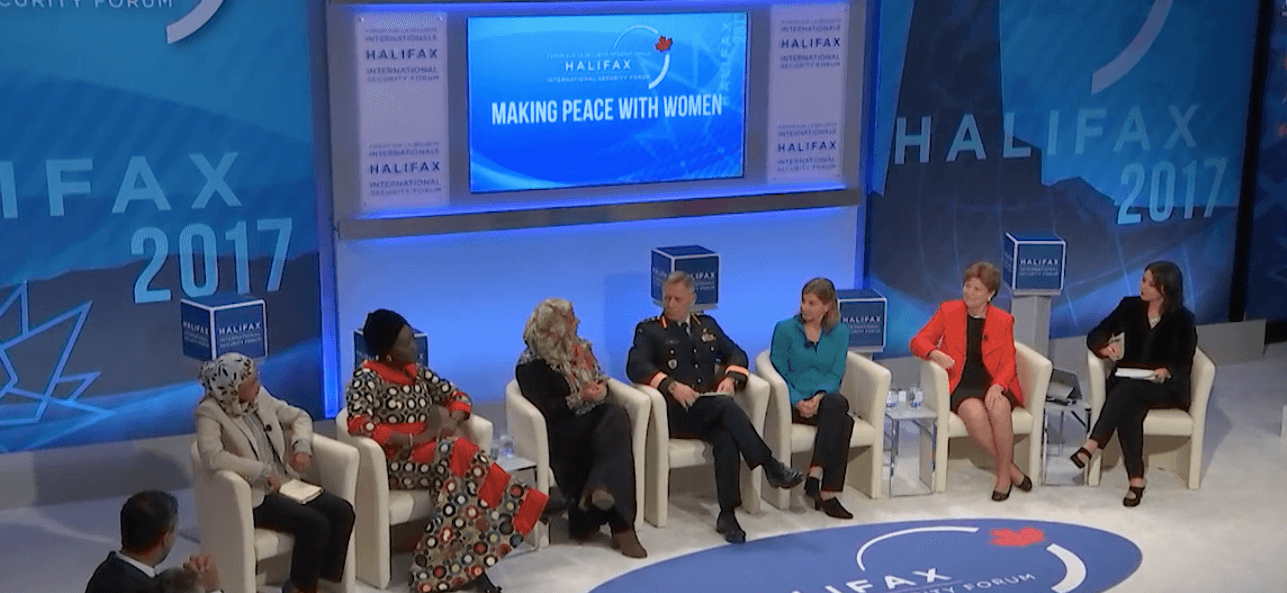
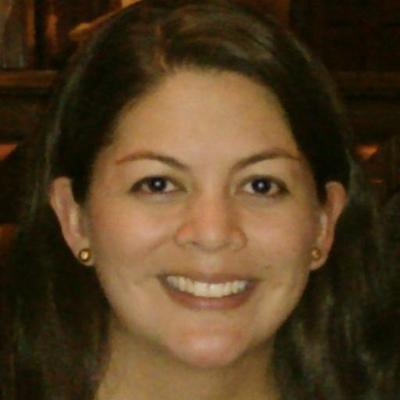
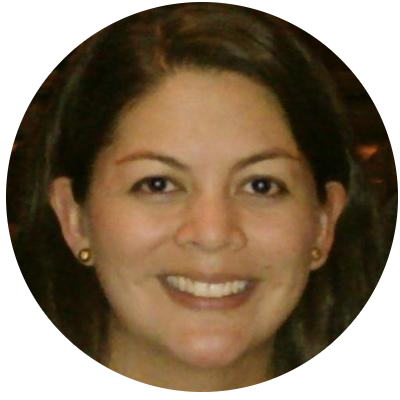
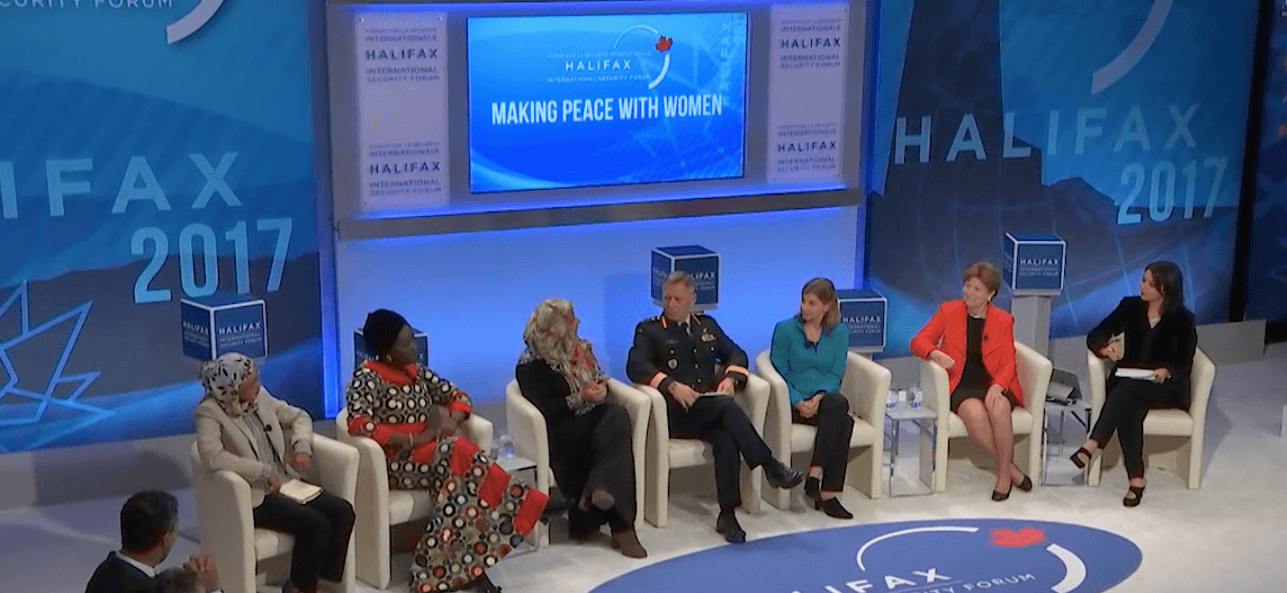

Got something to say?